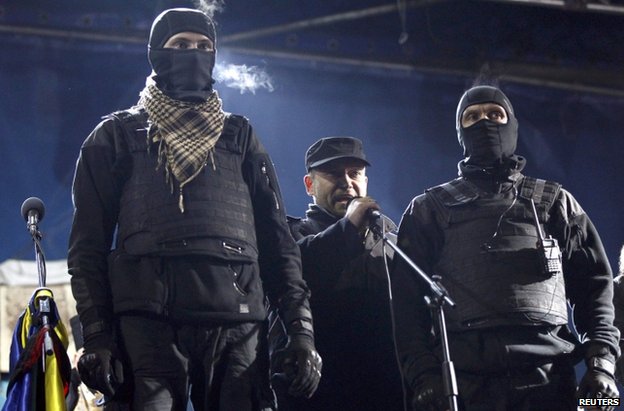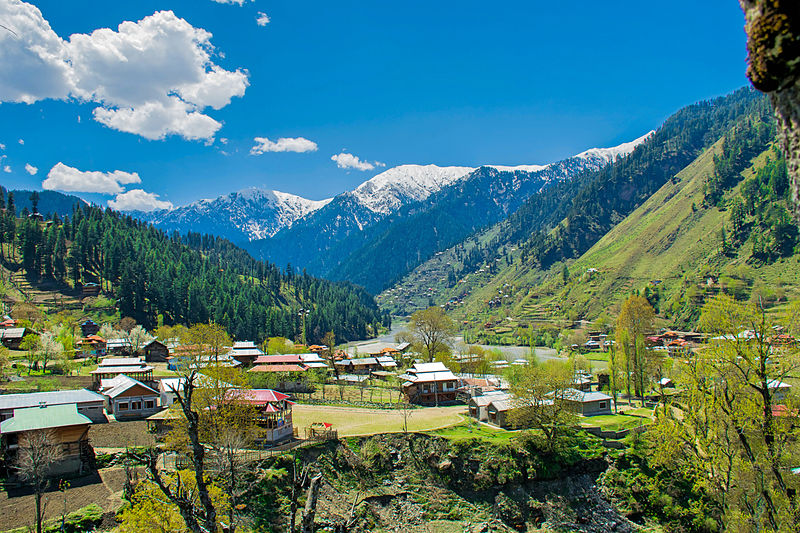As it attempts to justify its invasion of Ukrainian territory, the Russian government has propagated allegations that the new Ukrainian government contains fascist elements. This claim has understandably gained relatively little traction in the west, and audiences are quite right to be sceptical. A closer examination of the current Ukrainian government, specifically its ministerial and high-level offices can provide some explanation as to how this narrative emerged.
The coalition of forces on the streets of Kiev before the ouster of Viktor Yanukovich contained a wide variety of political forces and perspectives. Moderate pro-European elements melded together with far more extreme and violent sectors. With the success of the resistance, the new government has incorporated individuals from across this wide spectrum.
Any claim that the government is fascist in general finds no support in the evidence. Nonetheless, there is a far-right element that has risen to cabinet positions, which should be of some significant concern to western audiences. In other words, Russia’s recent attempts to delegitimize the new Ukrainian government have been more misleading than they have been false. The uncomfortable reality is the new Ukrainian leadership does contain far-right elements that could reasonably be described as fascistic.
Perhaps the most startling indication of this is the rise of Dmytro Yarosh to the position of Deputy National Security Leader. Yarosh is the most prominent member of the militantly nationalist “right-sector”, a group that has attracted concern about its propensity for violence and fascist tendencies.
Yarosh serves under the current National Security Leader, Andriy Parubiy. In 1991, Parubiy founded a far-right political party considered by some western critics to be fascist in nature. This party evolved into the far-right Svoboda party that has had several candidates elected to the Ukrainian parliament. This party’s role in the coalition government has resulted in it attaining a presence in the cabinet.
Most importantly, Ukraine’s current Deputy Prime Minister is a member of Svoboda. While attracting less attention for extreme nationalism than some of his colleagues, he has made controversial comments that would make many uneasy about his commitment to human rights.
The rise of Svoboda has left many observers astonished and concerned. The limited electoral support this party can rely on means it would be unlikely to hold such influential positions under normal circumstances. It received 1.4% of the vote in the most recent Presidential election in 2010. This should underscore the importance of a quick return to clear electoral democracy and a restrained approach to Ukraine’s government until this occurs.
Nevertheless, Svoboda’s presence in the cabinet does not render the current Ukrainian government fascist. The presence of some neo-fascist elements, however concerning they may be, does not render everyone else in the government fascistic. It certainly does not justify a military intervention into a peaceful foreign territory. But the fact that Russia’s claims cannot be rebuked as entirely false, that it must be explained that only some members of Ukraine’s governing leadership can be labelled fascistic, is a startling illustration of the troubling state of affairs the country has found itself in.




